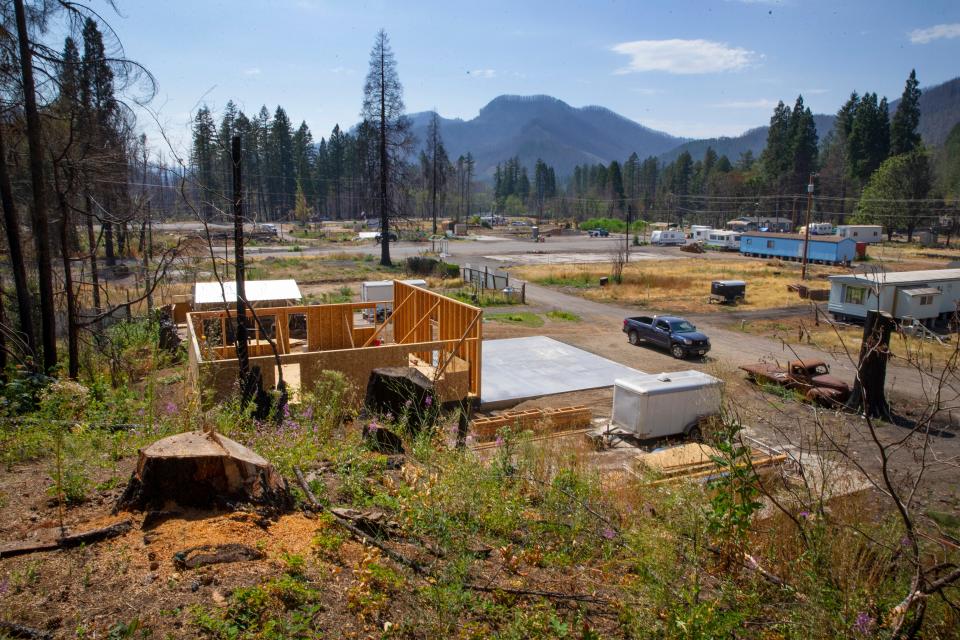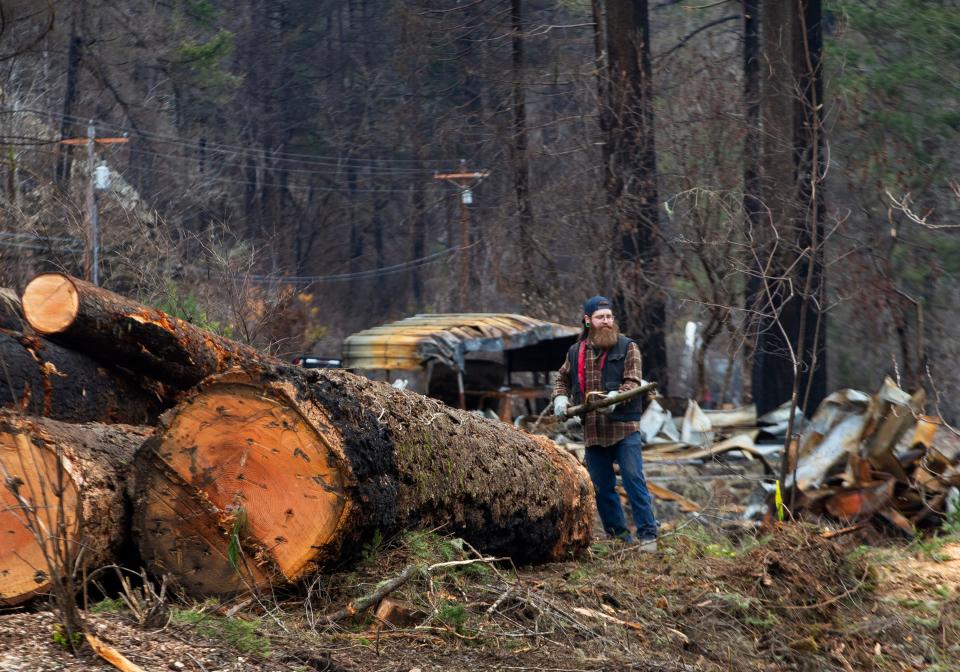Oregon fixed to spend $422M on rebuilding for victims of 2020 Labor Day Fires
The state's ReOregon program is poised to spend $422 million to support the 2020 Labor Day Fires survivors in eight counties, including Lane, who haven't been able to rebuild or find safe, affordable homes.
Oregon Housing and Community Services submitted its action plan, which outlines how it will spend disaster recovery grants appropriated in fall 2021, to the U.S. Department of Housing and Urban Development on Wednesday. The state, if HUD approves the plan, likely will launch its program late this year or in early 2023, according to a news release.
OHCS expects to have approval of the plan from HUD in 60 to 90 days. OHCS will implement programs as soon as possible but likely won't be ready to take and approve applications until the first half of 2023.
The action plan for the ReOregon program would support recovery from the 2020 Labor Day Fires in Clackamas, Douglas, Jackson, Klamath, Lane, Lincoln, Linn and Marion counties, according to the release. The program's goal is to provide survivors equitable access to resources so they can be permanently, safely and affordably housed.

The action plan reports 615 homes in unincorporated areas of Lane County were either damaged or destroyed in the 2020 Holiday Farm Fire, which burned more than 173,000 acres in the McKenzie River Valley. That number is three three times greater than the average number of annual permits the county issues in its unincorporated areas.
As of Thursday, Lane County has received 214 home permit applications from Holiday Farm Fire-affected properties, according to county data. The county has issued 147, finalized 54 and has another 13 in review.
The state is still housing 69 survivors of the 2020 Labor Day Fires in two Lane County hotels, down from 135 in December, according to Oregon Department of Human Services spokeswoman Sherryll Hoar.
The core elements of the plan, refined through extensive public engagement in fire-impacted areas in May, are:
A housing replacement program for homeowners who lost homes to the fires.
A new homeownership program for fire survivors who were renters and displaced by the fires.
A fund to support local priority infrastructure, mitigation activities and economic revitalization projects.
Other ReOregon programs include intermediate housing assistance, housing recovery services and recovery planning, as well as services for rent support, housing navigation, legal assistance and survivor case management.
More:The Holiday Farm Fire ravaged McKenzie River communities. Recovery is progressing — slowly
The largest portion of the ReOregon budget is nearly $205 million for the homeowner assistance and reconstruction program, 48% of the total. Another $119 million would be dedicated to the homeownership opportunities program, designed to develop single-family housing for the purpose of selling it to disaster-impacted first-time homebuyers.
Remaining dollars will be spent on legal services, a disaster resilience infrastructure program, intermediate housing assistance, housing and recovery services, a community planning revitalization program and administrative costs.
There are programs currently available for low- and moderate-income fire survivors that can help more immediately.
Survivors of the 2020 Labor Day Fires can enroll with a disaster case manager who can help them create a recovery plan tailored to their situation. Survivors can reach disaster case managers through a state hotline at 833-669-0554.
To learn more about the ReOregon Action Plan or to sign up for email updates visit Re.Oregon.gov.

Contact reporter Adam Duvernay at aduvernay@registerguard.com. Follow on Twitter @DuvernayOR.
This article originally appeared on Register-Guard: State plans to spend $422M on rebuilding for 2020 wildfire victims

